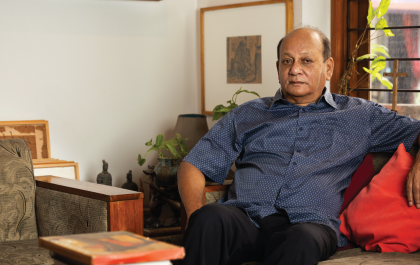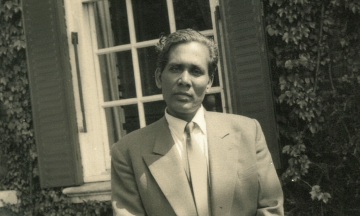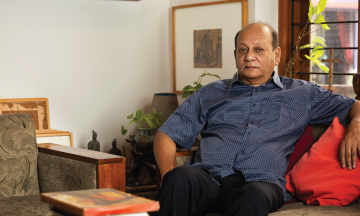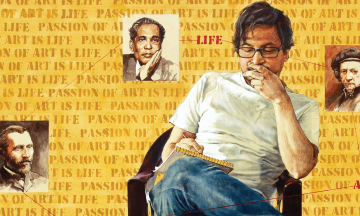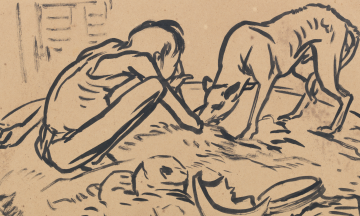By Abak Hussain
A prestigious medical journal from a year ago reports the case of a 14-year-old boy with an unremarkable medical history suddenly withdrawing from society. His home environment and family history seemed normal – his parents and his brother were in good health, and other than his mother suffering from a mild panic disorder in her late-40s, there was little else of note. His blood work and basic testing were all within the normal range. But there seemed to be something in the behavior of the boy that would be concerning for any parent. He didn’t want to go to school and simply would not budge on the subject. When brought in front of a psychiatric evaluator, he clearly and intelligently answered all questions posed to him, but then said, “I just don’t want to go to school.”
The boy in question took a couple of years to reflect on his situation, his wants and needs, and the requests of his parents – and eventually when he felt he was ready, got back out into society, and enrolled in a vocational school. He was capable of the realization that practicing isolation is not sustainable in the long run, and yet needed the space, so to speak, away from others.
There was nothing to suggest any sort of serious cognitive impairment or lack of social skills – factors that may cause a person to self-isolate. After the case was recorded, the boy never received direct therapy from a mental health professional, but things turned out OK anyway – his journey back out into the world was mostly self-guided.
Just one among many
This boy, who should by now be well into his 20s, is just one among many – he is part of a phenomenon known as hikikomori, and while the term is Japanese, it is a pattern of behavior that is hardly confined to Japan, and can be seen in urban societies across the word. So what exactly is hikikomori and why should we care? Let us start with the basic definition. Hikikomori, which refers both to the general phenomenon as well as the isolated individuals themselves, was recognized in 2003 by the Japanese Ministry of Health, Labor, and Welfare. The Ministry at the time established the criteria for identifying hikikomori as follows: 1) a lifestyle centered at home, 2) a total lack of willingness to attend school or work, 3) persistence of these symptoms for six months at least, 4) other mental disorders are excluded from an assessment of hikikomori, and finally 5) those with active social lives such as friendships outside of school and work are excluded.
The term dates back to the 1980s, but these last few years, with the Covid-19 pandemic and its aftermath, have severely exacerbated the problem of self-imposed isolation. There are now something like 1.5 million people in Japan who have chosen to live these isolated lives, and it is fascinating to ponder the question of why such a heavily urbanized population, in a country at the frontier of pop culture, tech, and cuisine, and one of the lowest crime rates in the world, would choose to become so reclusive. It is one thing if we, as Bangladeshis, prefer to stay at home – after all, the outside world over here can be a menace, with the air pollution, traffic, and whatnot … but in Japan? So prevalent is hikikomori these days that I think it is fair to call it a sub-culture. What explains this trend?
There are many theories that delve into the “why” of this reclusive culture, ranging from psychiatric to sociological to existential, and not being qualified to assess the merits of the more clinical theories, I find it more interesting to look at aspects of Japanese culture (and many East Asian as well as South Asian cultures) that may explain why this is happening. In a way, the more successful a culture is, the more stringent its rules. Japan is known for the insane work pressures of its corporate culture, a lack of work-life balance, rigid hierarchies, and patriarchal norms. Shame and honor are built into the discourse, and while the society has modernized and moved into the future, somewhere deep in the Asian DNA is the “succeed or die” attitude. South Asians who grew up with a parent who fits the “brown parent” archetype will be able to relate. Japan of course has many unique shades of its own. It is in Japan that we see the culture of suicide to cleanse the effect of dishonor, and it is in Japan that we see the phenomenon of karoshi, literally meaning “death by overwork.” In such a culture, many young people or even middle-aged people may feel that they have no place, or that they are unable to live up to the pressures of society. The way out may be to simply say no to society. Hikikomori is a refusal to play the game, and to live on your own terms.
Ultimately, then, hikikomori should perhaps be seen as a failure of society, and not so much a problem with the individual. It is the job of a society, as it evolves, to be more and more inclusive and to understand the varying needs of people, and also to diversify its definition of success. Not everyone, for example, is meant to succeed in corporate life, and if you judge a fish by its ability to climb a tree, you will not only be destroying a whole generation’s human potential but will also create a mental health epidemic.
It’s OK to take a step back
Without a doubt, turning into a full-on hermit is probably not the best way to go about dealing with the pressures of society. However, my gentle suggestion would be, rather than jumping to criticize the decisions taken by the hikikomoris of Japan and anywhere else in the world, let us approach the issue with kindness and empathy. A hermit need not be readily labelled a weirdo – we can try to understand why distancing from others seemed like the right course of action to the person at the time.
For example, sometimes, the best course of action is indeed to take a step back and to re-evaluate one’s priorities. When life gets overwhelming, we need to draw boundaries, and that often involves temporarily hiding oneself until the noise dies down. Even therapists will sometimes recommend removing yourself from a triggering environment.
Of course, there is always the looming danger of isolation turning into irreversible habit – not having to deal with anyone can at one point turn addictive. But it is important that we keep asking the bigger questions, and reach out to others with compassion, tolerance, and acceptance. Our worth as humans on this Earth goes so much beyond what we achieve on our school reports cards or employee evaluations, and perhaps if society worked harder at becoming a safe space for all, fewer people would feel like diving into a cave and never coming out.
Abak Hussain is Contributing Editor at MW Bangladesh
Abak Hussain
- Abak Hussain
- Abak Hussain
- Abak Hussain
- Abak Hussain
- Abak Hussain
- Abak Hussain
- Abak Hussain
- Abak Hussain






